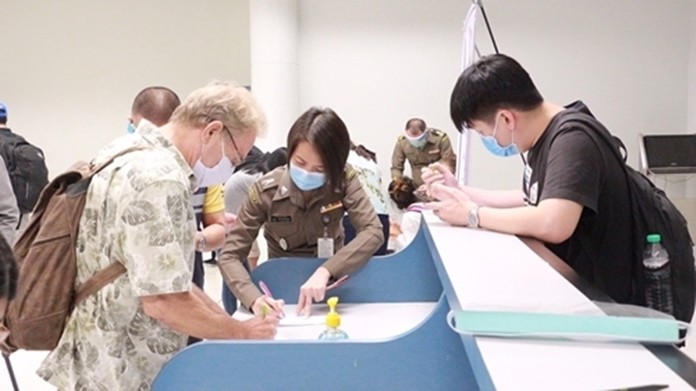
With the general ban on foreign tourism to Thailand, the internet is full of fake news and conspiracy theories sometimes designed to milk the cash of the unwary. Here are some circulating in UK, mainland Europe and US.
If you can buy an airticket you can fly into Thailand. Not so. The possession of an airticket does not guarantee you can even board a plane, yet alone actually get past immigration here. Each and every foreigner wanting to come must seek the approval of their local Thai embassy which has the power to issue an all-important certificate of entry without which you are doomed. If you visit the website of your local Thai diplomatic post you will see the documentary hill to be climbed. There are no scheduled flights into Bangkok, but only repatriation journeys for Thai citizens and approved foreigners.
You can fly to a third country and cross into Thailand by a land border. Enterprising suggestion, but no way. Even assuming you can fly to a country not too far from Thailand, all border crossings into the country are closed except to goods traffic and – at some posts – documented labourers from Laos, Cambodia and Mynamar. Unless you can prove you have permission to mix the concrete at the construction of a Thai condo or are legally casting the nets on a Thai fishing boat, forget that one. Swimming across a river in the middle of the night also not recommended, particularly if carrying a suitcase.
I own a condominium in Pattaya and usually live there. Therefore, I am a resident.
In your eyes for sure, but not in Thai law. Ownership of property such as a condominium – and don’t forget foreigners don’t own land here – does not in itself bestow residency rights. In the Thai language “residency” in effect means “permanent residency” as an expression. Permanent residency is a long process in Thailand and requires you to have a recent history of working legally and successfully, to be able to communicate in Thai and likely to have proved your worth to the Thai economy or to Thai culture. You can always tell a permanent resident – his or her passport does not have an immigration stamp indicating an end date by which the holder must leave the country or seek an extension.
I’m an Elite card holder so I have precedence over the others.
It is true that the Thai government did include this category of foreigner to be able to apply to their local Thai embassy to return or to visit. Essentially, it is a long-term visa of between 5 and 20 years in exchange for a non-returnable cash fee of between 500,000 baht and in excess of one million. However, the wheels of Thai bureaucracy turn slowly and, to date, Thai embassies don’t seem to have caught up. The website of the Thai embassy in London, to date, does not list Elite card holders as eligible for the certificate of entry. So everyone is waiting for clarification on this one.
To return, you need comprehensive medical insurance worth at least US$100,000 which is impossible to obtain in Thailand.
Wrong on this one too. There are several Thai insurance companies offering insurance which fits the entry requirements. These can be applied for online. The fees are on a sliding scale according to age. However, if you are over 75 years, you may indeed find it impossible to be covered. One or two US-based insurance companies offer medical benefits up to age 120 (with free annual premiums once you are a centenarian) but whether such a policy would satisfy the officials at a Thai embassy is up to them. Not likely. What is true is that advanced age foreigners are currently banned from entry to Thailand whatever their status or reasons. That’s tough.
 |
 |
 |





